It’s an undisputed fact that Chinese tourists are determining how luxury travel evolves. An insatiable appetite drives the top segment of this market on home ground, and in the bustling metropolis of Beijing, elegant hotels are constantly opening, each promising the ultimate experience. The top names in luxury hospitality, such as Aman Resorts, Bvlgari Hotels, Rosewood Hotels & Resorts, and the Waldorf Astoria Hotel, have all opened their doors in the Chinese capital. On the calendar for next year are two Park Hyatt hotels.
Still, choosing the right hotel to stay at in Beijing is not an easy task. Beijing is exciting and likely to tire you. It is a city of heady juxtapositions, where gravity-defying skyscrapers designed by world-famous architects tower above narrow hutongs, and where traffic, street hawkers and busy Beijingers co-exist.
In such a setting, luxury hotels have made where you lay down your head a less taxing decision. Two of the top experiences are at Rosewood Beijing and Bvlgari Hotel Beijing.
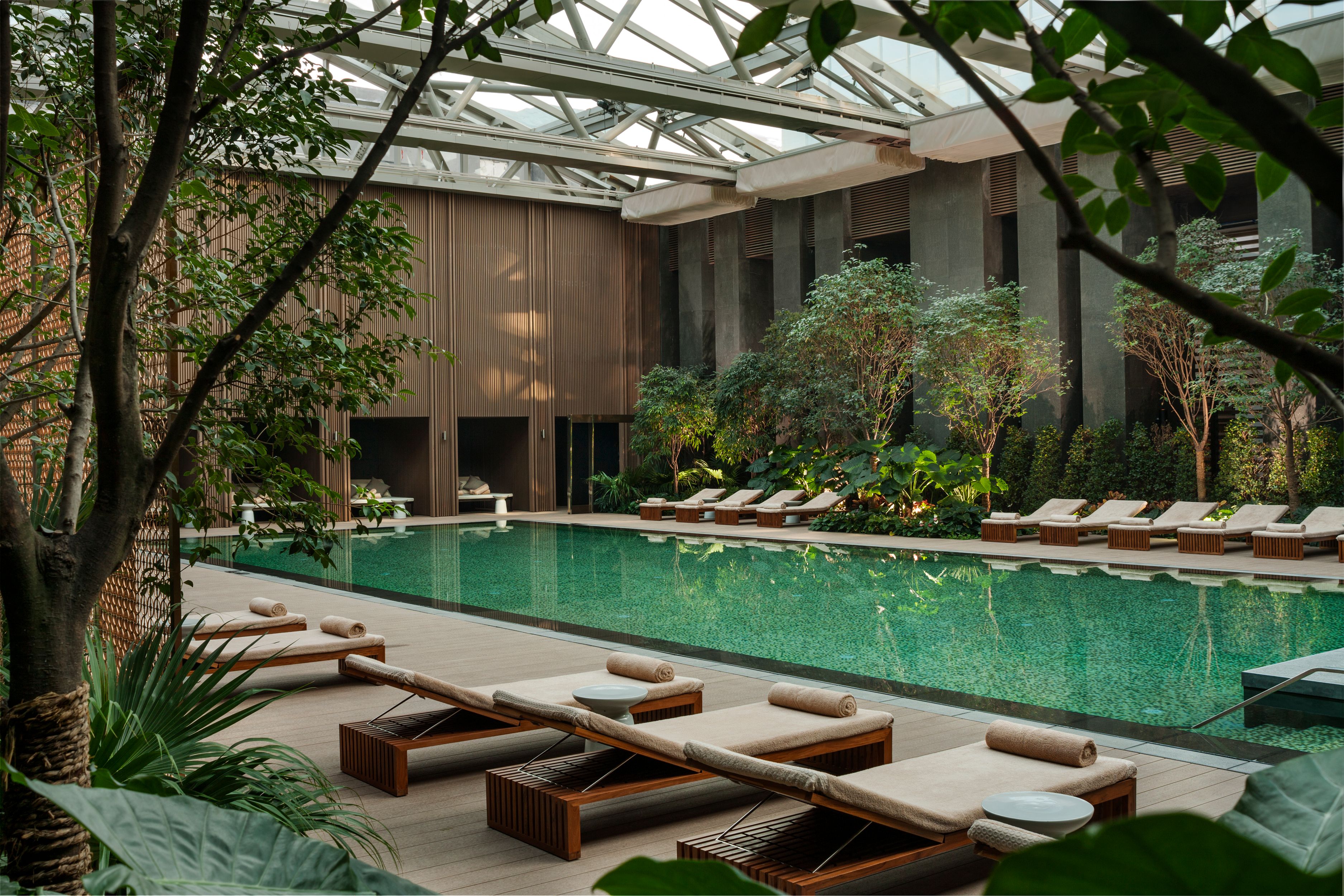 The swimming pool at Rosewood Beijing
The swimming pool at Rosewood Beijing
Rosewood chose Beijing for its debut into China in 2014, where it competed with the likes of the grande dame, The Peninsula Hotels, as well as the lofty Aman. But Rosewood has distinguished itself with heritage that is reflected through art, architecture, cuisine and spa, in an elegantly understated manner.
Well-heeled domestic travelers make up 60 percent of the Rosewood Beijing clientele, a spokesman said. And what they crave are the touches that go beyond the accoutrements of wealth — experiences that allow them to be immersed in their own culture, which they increasingly take pride in.
From the outside, the 283-key hotel is a monolith of Mongolian bluestone, a contrast to the gray and dusty city. Based on a palette of cream and rust, the interiors, outfitted by Melbourne-based firm BarStudio, are a balm for the senses. Art is everywhere, showcasing the breadth of Chinese talent with a mix of calligraphy, paintings, sketches and sculptures.
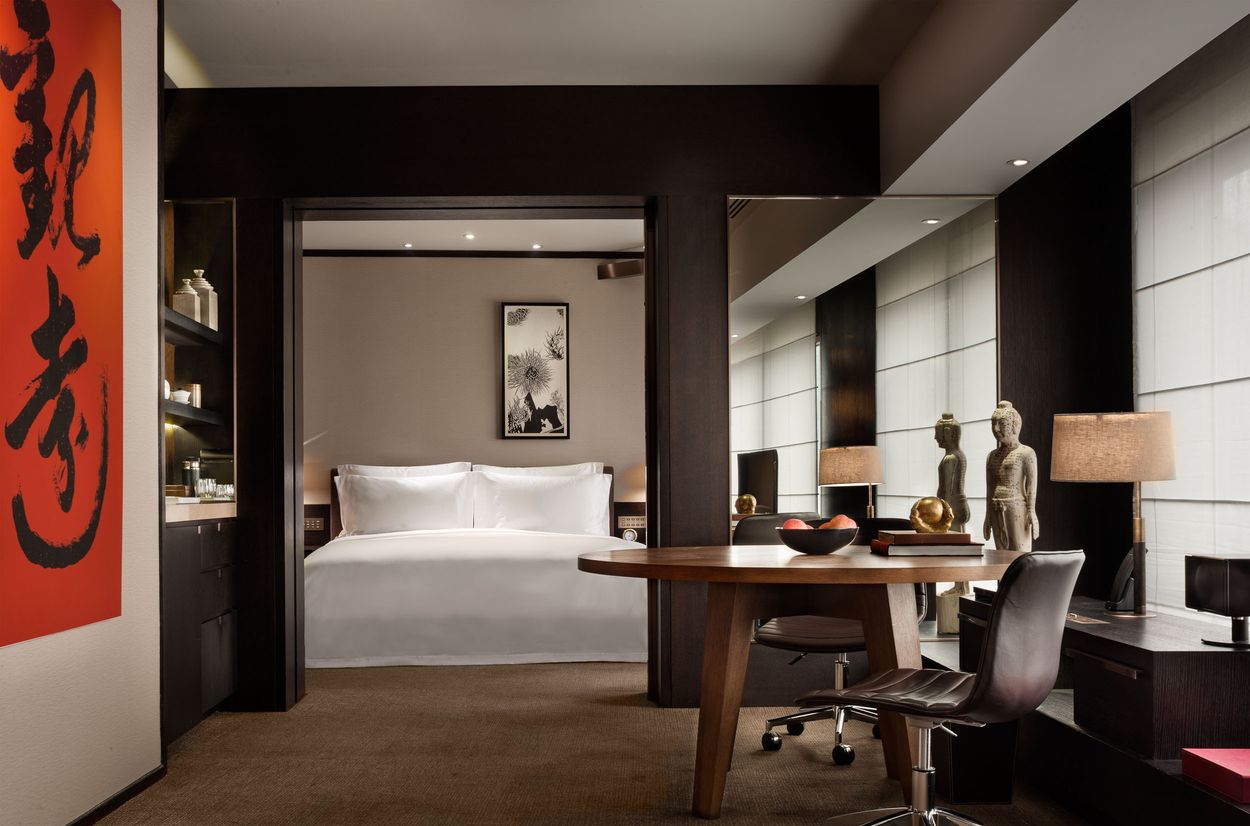 Neutral finishes for a luxury residential feel at Rosewood Beijing
Neutral finishes for a luxury residential feel at Rosewood Beijing
Three of Rosewood's six F&B outlets stand out. The crispy Peking duck in the Country Kitchen is one of the city’s best. The springy hand-pulled noodles drenched in scallion and chili oil, whipped up by chef de cuisine Mr. Leo Chai and his team in the open kitchen, is extremely satisfying in its simplicity. The atmosphere is casual, with exposed brickwork and enamelware service creating a charming provincial feel. You’ll find more homage to China's traditional fare in hot pot dinners at the fashionable Red Bowl, where Wagyu beef and Iberico pork are dipped in steaming pots of bone broth or spicy Sichuan peppercorn soup.
In a city that both charms and drains you, the facilities are key. The hotel’s swimming pool will take your breath away. A high glass roof allows for maximum natural light to shine through while providing shelter when temperatures drop.
Spa treatments tap into traditional Chinese remedies and history. I chose the Empress Dowager Cixi Facial from the Lost Remedies series. A jade roller was applied onto my skin to boost blood circulation while a host of products containing natural ingredients such as coix, pearl and ginseng were applied to soothe and soften.
Meanwhile In Sanlitun
Twenty minutes away by car from Rosewood Beijing is the Bvlgari Hotel Beijing in Sanlitun, the city’s leafy embassy district.
This hotel pays less obvious tribute to the host city, and instead steadfastly retains its Italian identity. Why not? With a strong following for its jewelry in China, Bvlgari began its foray into the country’s hospitality sector last September starting with Beijing. (It recently opened a second outpost in Shanghai.)
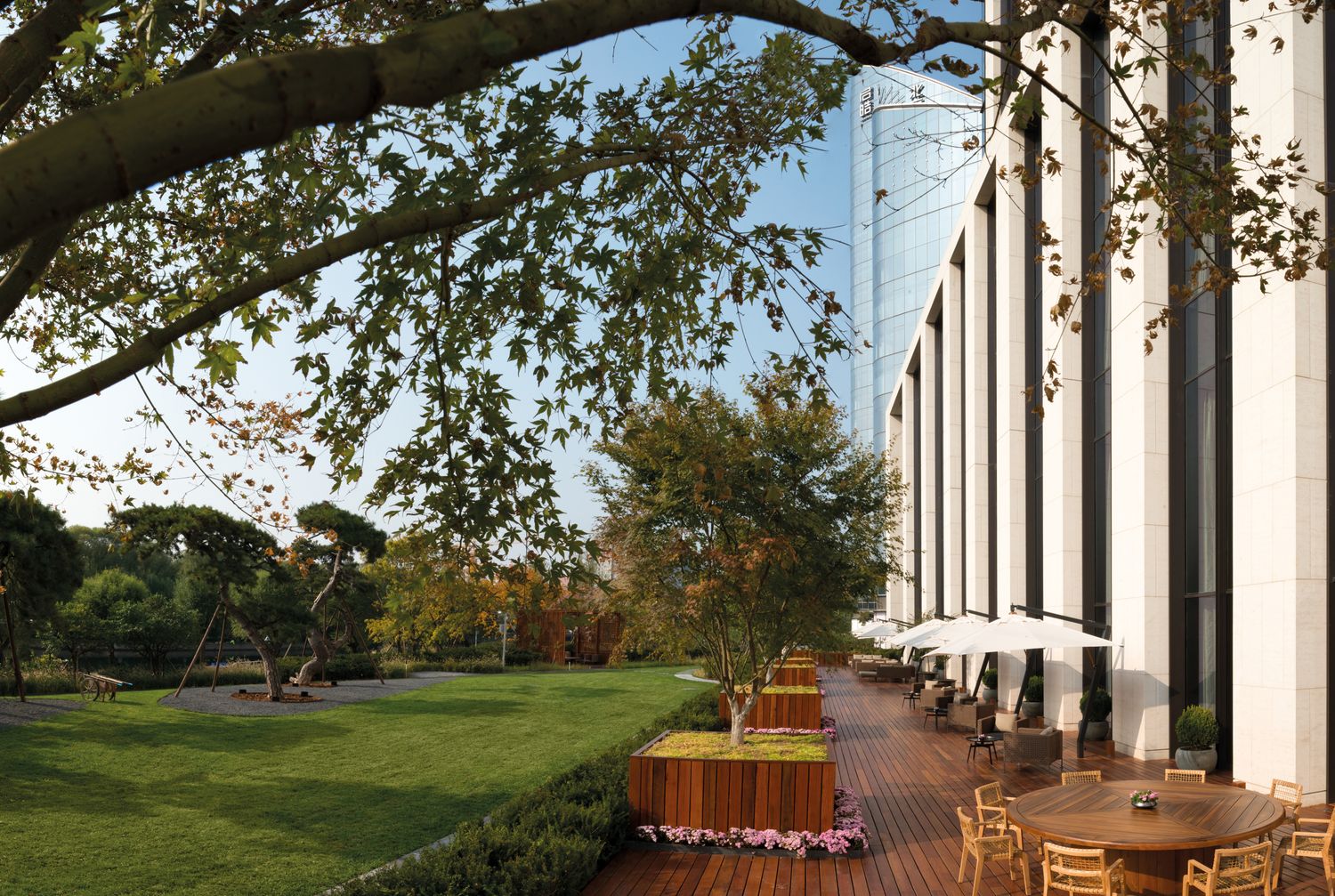 Bvlgari Hotel Beijing
Bvlgari Hotel Beijing
As with all other Bvlgari hotels, the interiors in Beijing were done by the Italian architecture firm Antonio Citterio Patricia Viel. The look is sleek, exclusive and unmistakably Italian, with furniture by B&B Italia and Maxalto, and a generous use of Italian marble and leather in all 119 rooms and suites.
Hints of the local come in subtle forms. Among photographs by Ms. Irene Kung and antique maps by Franciscan friar and cartographer Vincenzo Coronelli are paintings by Chinese artist Mr. Yan Pei-Ming. The Italian heritage is again repeated at the swimming pool, which is reminiscent of an ancient Roman bath.
Bvlgari is clear about leaning towards its Italian heritage with its sole restaurant, Il Ristorante, which offers only Italian fine dining. The menu is a collaborative effort with Chef Niko Romito of the three-Michelin-starred Reale in Abruzzo, Italy. Eschewing locavorism, Chef Romito put together a menu that showcases the “Made in Italy” concept, using premium Italian produce in classics such as ragu and bruschetta.
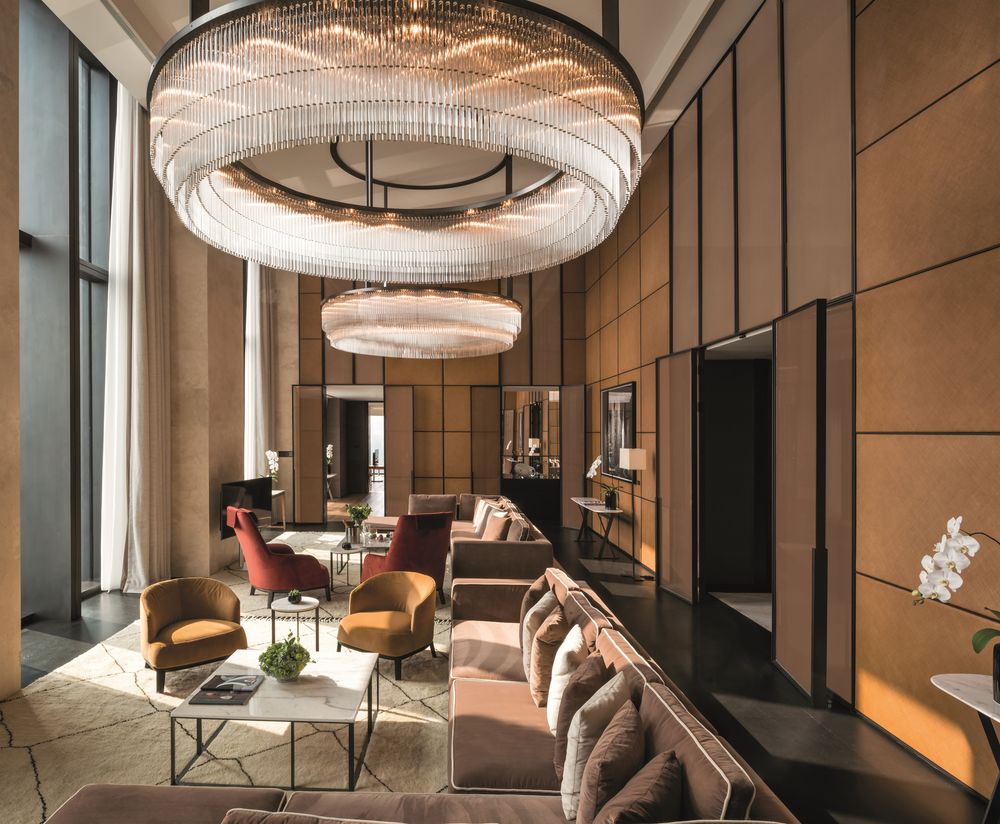 Living room of the Bvlgari Suite
Living room of the Bvlgari Suite
To extend the urban resort experience, the 1,600-sqft Bvlgari Spa offers a comprehensive menu of indulgent treatments for face and body. The ultimate luxury Bvlgari experience can be had at the Bvlgari suite, which, at 4,300sqft, makes it one of the largest luxury suites in Beijing. For excursions, ask to be chauffeured in one of the hotel’s Maseratis.
The brand stories may be vastly different, and even appeal to different tastes, but the common thread is that the hardware at both the Rosewood Beijing and Bvlgari Hotel Beijing are top-end, as are the details of the experiences they offer. While the rich are looking to enhance travel beyond the trappings of luxury, they still want to do it in style.






 The swimming pool at Rosewood Beijing
The swimming pool at Rosewood Beijing
 Neutral finishes for a luxury residential feel at Rosewood Beijing
Neutral finishes for a luxury residential feel at Rosewood Beijing
 Bvlgari Hotel Beijing
Bvlgari Hotel Beijing
 Living room of the Bvlgari Suite
Living room of the Bvlgari Suite


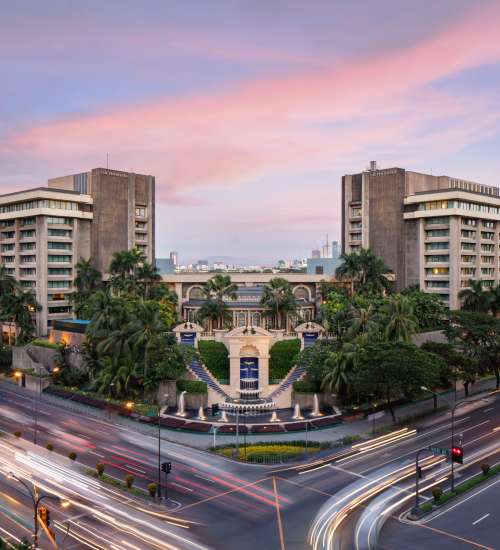
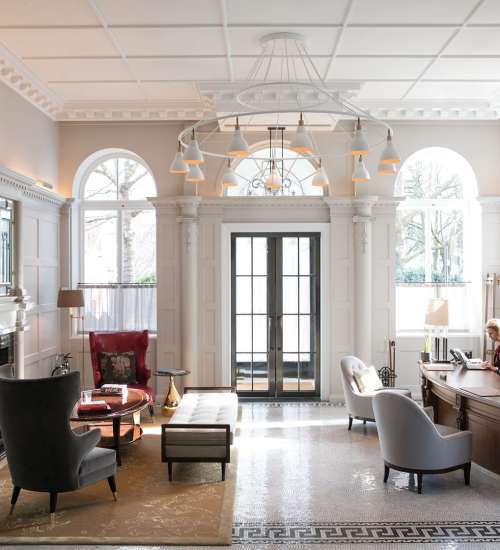
 Back
Back
